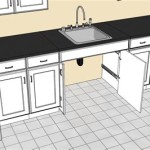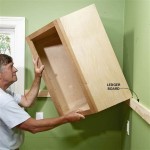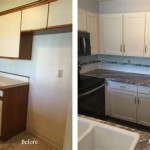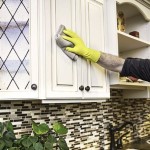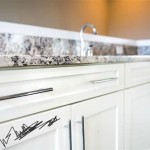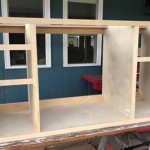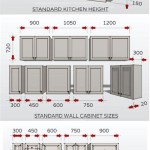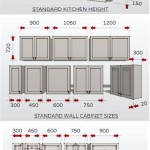Kitchen Cabinet Surfaces: A Guide to Choosing the Right Material
Kitchen cabinets are a central element of this space, often setting the tone for the overall design and functionality. The choice of cabinet surface material plays a crucial role in determining the durability, aesthetics, and longevity of these cabinets. This article explores various kitchen cabinet surface materials, their advantages, disadvantages, and factors to consider when making a selection.
Wood
Wood is a classic and popular choice for kitchen cabinet surfaces, offering natural warmth, beauty, and versatility. It comes in a wide variety of species, each with unique characteristics like grain patterns, colors, and hardness. Popular wood options include oak, maple, cherry, and walnut.
Advantages:
- Natural beauty and warmth
- Variety of species and finishes
- Can be refinished multiple times
Disadvantages:
- Susceptible to scratches, dents, and water damage
- Requires regular maintenance, such as sealing and refinishing
- Can be more expensive than other materials
Laminate
Laminate is a synthetic material consisting of layers of paper impregnated with resin, creating a durable and affordable surface. It comes in a wide range of colors, patterns, and textures, imitating the appearance of wood, stone, or other materials.
Advantages:
- Durable and resistant to scratches, dents, and moisture
- Easy to clean and maintain
- Wide variety of styles and colors
- Cost-effective
Disadvantages:
- Can be susceptible to heat damage
- Not as aesthetically pleasing as natural materials
- Seams and edges can be visible
Thermofoil
Thermofoil, also known as PVC laminate, is a plastic-based material that is heat-sealed to a substrate. It offers a smooth, glossy finish with a wide range of colors and textures.
Advantages:
- Moisture-resistant and easy to clean
- Durable and scratch-resistant
- Wide variety of colors and styles
Disadvantages:
- Can show fingerprints and smudges easily
- Not as customizable as other options
- Can be susceptible to heat damage
Painted Cabinetry
Painted cabinets offer a versatile and customizable option. They can be painted in any color imaginable, allowing homeowners to create a unique and personalized look.
Advantages:
- Unlimited color options
- Can be easily refreshed with a new coat of paint
- Can be used with various cabinet materials
Disadvantages:
- Can be susceptible to chips and scratches
- Requires regular maintenance to keep the paint fresh
- Can be more expensive than other options
Acrylic
Acrylic is a high-gloss, durable, and scratch-resistant surface material. It is known for its sleek and modern appearance, making it a popular choice for contemporary kitchens.
Advantages:
- Extremely durable and scratch-resistant
- High-gloss finish creates a modern and sleek look
- Easy to clean and maintain
Disadvantages:
- Can be expensive
- Can be susceptible to heat damage
- Limited color and style options
Stone
Natural stone, such as granite, marble, or quartz, offers a luxurious and durable surface for kitchen cabinets. It adds a touch of elegance and sophistication to the space.
Advantages:
- Unique and natural beauty
- Durable and heat-resistant
- Easy to clean and maintain
Disadvantages:
- Can be expensive
- Can be susceptible to staining and etching
- Requires regular sealing
Metal
Metal, such as stainless steel or aluminum, offers a modern and industrial look for kitchen cabinets. It is durable, resistant to scratches, and easy to clean.
Advantages:
- Durable and scratch-resistant
- Modern and industrial look
- Easy to clean and maintain
Disadvantages:
- Can be expensive
- Can be susceptible to fingerprints and smudges
- Can be noisy when doors are closed
Factors to Consider When Choosing Kitchen Cabinet Surfaces
When selecting a cabinet surface material, several factors should be considered:
-
Budget:
Different materials have varying costs, so it's essential to consider your budget. -
Lifestyle:
Your lifestyle and household needs will influence your choice. For example, a busy family with young children might prefer a durable and easy-to-clean surface. -
Aesthetics:
The overall design of your kitchen will dictate the appropriate cabinet surface. -
Maintenance:
Consider how much time and effort you're willing to invest in maintaining your cabinets.
By carefully evaluating different materials and factors, you can choose the perfect kitchen cabinet surfaces that meet your needs, preferences, and budget.

A Look At Cabinet Door Surfaces Revival Home Renovations

2024 Kitchen Cabinet Trends 20 Ideas Flooring Inc

How To Choose The Best Surfaces And Textures For Your Bespoke Kitchen

Customized Modern Style Smooth Surface Lacquered Whole Plywood Kitchen Cabinets China Cabinet Design Made In Com

Wood Veneer Kitchen Cabinets A Review

5 Kitchen Island Design Ideas Surface One

6 Tips For Painting Your Kitchen Cabinets

Kitchen Cabinet Color Combinations With Natural Stone Slabs

6 Top Reasons Why You Would Opt For Hpl Kitchen Surfaces Transformad Hitech

Textured Matt Surfaces Are All The Rage Stone Concrete Effect Kitchens
Related Posts

